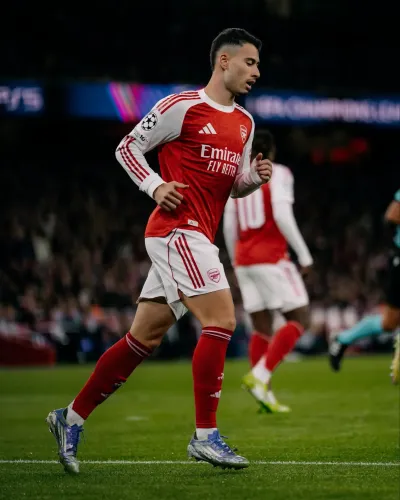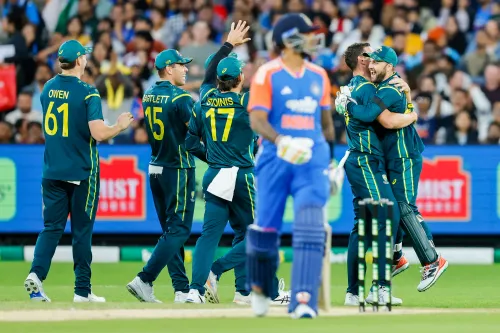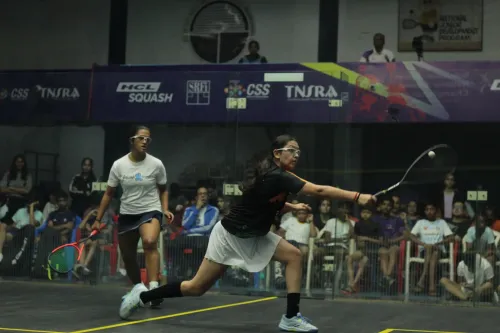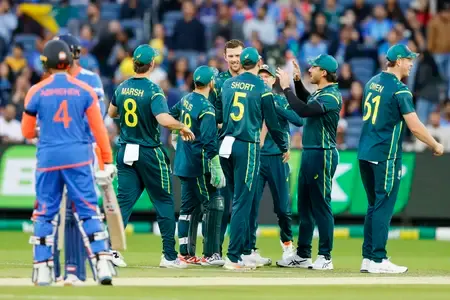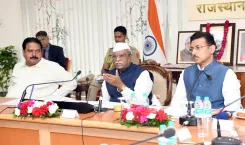How Did Goa, Gujarat, and Kerala Triumph at Khelo India Beach Games?
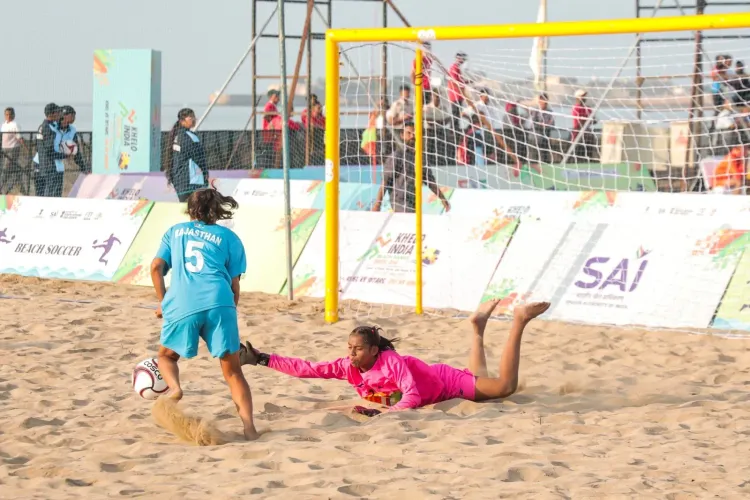
Synopsis
Key Takeaways
- Khelo India Beach Games 2025 commenced with beach soccer competitions.
- Goa emerged victorious in the opening match against Rajasthan.
- Non-coastal teams face unique challenges compared to their coastal counterparts.
- Beach soccer rules differ significantly from traditional soccer.
- Training adaptation is crucial for non-coastal teams to compete effectively.
Diu, May 19 (NationPress) The inaugural Khelo India Beach Games 2025 (KIBG) commenced at the scenic Ghoghla beach in Diu on Monday, with beach soccer taking the spotlight on the event's opening day.
Against the backdrop of the stunning Arabian Sea, the first match featured Goa and Rajasthan in the boys’ category. The contrasting backgrounds of the teams were highlighted by the final score of 13-9 in favor of Goa.
While Goa boasts an abundance of beaches, Rajasthan lacks any, putting the Goans at home and the Rajasthanis at a disadvantage. This raises the question: Will non-coastal states struggle at KIBG 2025? Not necessarily, as evidenced by Madhya Pradesh's impressive medal haul at last year's Diu Beach Games despite being a non-coastal state. However, challenges remain.
Rajasthan's team manager Hari Om described the hurdles his team encountered leading up to KIBG. "It’s not straightforward for us as a non-coastal state. We train on an artificial field back in Rajasthan, using sand transported from southern Rajasthan, but it differs significantly from the sand used in practice on the beach."
"We started strong against Goa but fatigue set in, giving them the advantage. Moving forward, we must enhance our stamina and hydration, as one player fell ill today. These are the challenges for a non-coastal team like ours," he explained.
Mukesh Kumar Sabberwal, coach of the Uttar Pradesh girls' team, shared similar concerns despite their strong start. "We train on grass, not sand. Today we triumphed over Rajasthan, another non-coastal state, but facing coastal teams will present a different challenge," he stated.
Sabberwal's concerns are valid, but what about the coastal teams? How do they prepare for matches against non-coastal teams? Goa's goalkeeper and captain, Pratik Kankonkar, addressed this. "We feel confident against non-coastal teams, knowing we will secure a win. We are beach players, familiar with sand and sea. We should have won by a larger margin," he remarked.
For those unfamiliar, beach soccer differs from traditional soccer. Each team fields five players, and matches are played in three 12-minute periods. There are eight teams in both boys’ and girls’ categories, divided into two pools, with the top two teams from each pool advancing to the semifinals.

